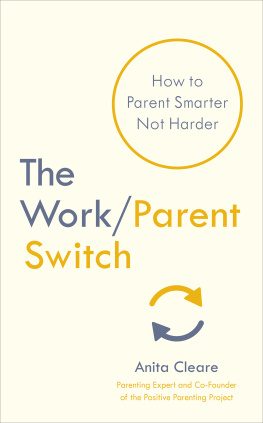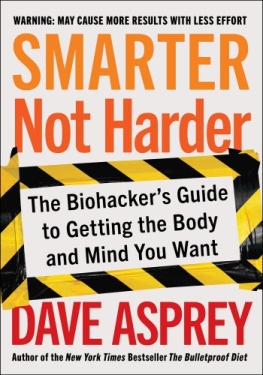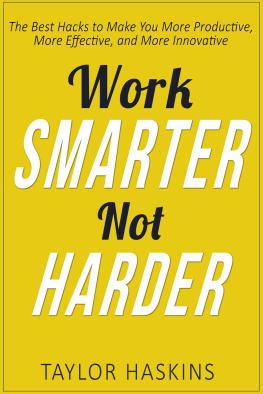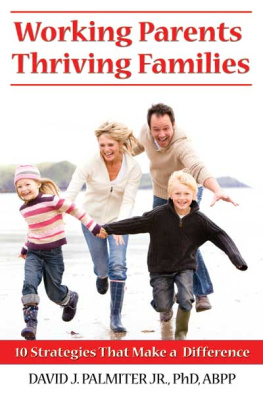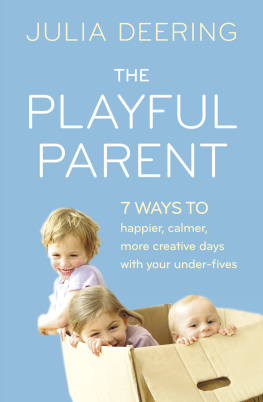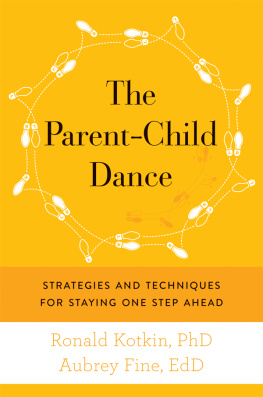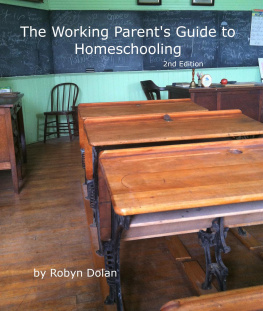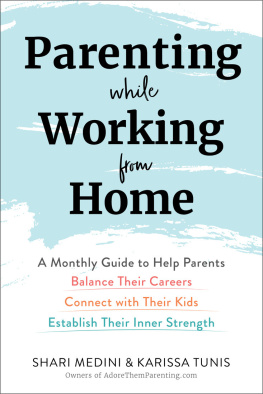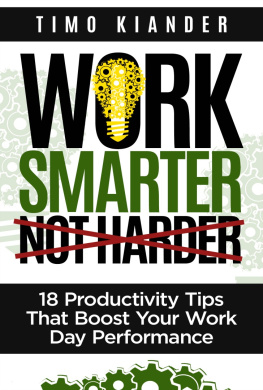Anita Cleare, MA, AdvDip, is a parenting speaker, writer, and coach who supports working parents to balance successful careers with being a parent. Anita has an academic background in developmental psychology alongside extensive professional experience supporting families. She speaks at events for working parents across the United Kingdom and internationally and delivers parenting seminars and one-to-one support. Her advice is regularly featured in the media, including The Sunday Times Magazine, the BBC, and the Telegraph. Anita writes the award-nominated Thinking Parenting blog. To learn more, visit anitacleare.co.uk.
I have been deeply inspired and moved by the many parents I have worked with over the yearstheir stories and struggles are written on every page of this book. Our children are so precious to us, and when things seem to be going awry, the hurt and anxiety can be hard to bear. I feel privileged that so many parents have let me into their lives and entrusted me with their truest thoughts and feelings. It is through these real lives that I have learned what makes a difference.
Many of the tips in this book have been picked up from other parents or from fellow professionals and family support colleagues, as well as from my Triple P training. I have loved being continually surprised by the things children get up to and by the brilliant responses (and wondrous contortions!) of their parents.
I am grateful to all the followers of my blog Thinking Parenting who have urged and encouraged me through the writing of this book. I cant tell you what a difference it has made knowing that you were looking forward to reading it! My thanks also go to my agent, Anna Power, for believing in me, and to my husband, Ivan Palmer, who deserves the highest accolades for supporting me 100 percent no matter what.
And of course I have to acknowledge my own children who, in addition to being the most amazing kids ever (and a continual source of pride and wonder), have also helped me personally to experience most of the challenges known in modern parenthood. Being your mom has stretched me beyond what I thought I was capable of, in every direction, and loving you has been the making of me.
Anita Cleare, Positive Parenting Project: You will find lots more tips, discussions, videos, and ideas on my website at www.anitacleare.co.uk.
Babies: If you want to learn about infant psychology and how to tune in to your babys signals, The Psychology of Babies by Lynne Murray (Constable & Robinson, 2014) is a helpful and practical read.
Child Development: For a quick and easy-to-read guide on child development across different ages, see the CDCs child development pages at www.cdc.gov/ncbddd/childdevelopment/.
Emotional Development: Youll find invaluable techniques for nurturing your childs emotional development in The Book You Wish Your Parents Had Read by Philippa Perry (Pamela Dorman Books, 2020).
Family Well-Being: The Action for Happiness website is full of simple practical ideas for the whole family for boosting resilience and well-being (www.actionforhappiness.org).
Healthy Living: Find advice from the American Academy of Pediatrics on all aspects of child health and well-being at www.healthychildren.org.
A Meaningful Life: For science-based insights on a wide range of topics relating to happiness and well-being, take a look at the online Greater Good magazine at www.greatergood.berkeley.edu.
Mindfulness: The Mindful website provides tips on meditation and guided meditations to help you practice at wwww.mindful.org.
Overparenting: To understand more about how overparenting undermines childrens development, read The Gift of Failure by Jessica Lahey (Harper, 2016).
Parenting for Brain Development:The Whole-Brain Child by Daniel J. Siegel and Tina Payne Bryson (Bantam, 2012) is an unmissable read if you are interested in how to parent to nurture your childs brain.
Play: The internet is jam-packed with play ideas for children. But you cant beat your and your childs imagination as a source of play ideas!
Positive Parenting: For evidence-based advice on using positive parenting strategies, turn to Triple P at www.triplep-parenting.net.
Positive Psychology: If you want to learn about positive psychology, the book Authentic Happiness by Martin Seligman (Atria Books, 2004) is a great place to start.
Positive Psychology in Education and Parenting: The Character Lab website is full of actionable insights from research that parents and educators can implement to support childrens well-being (www.characterlab.org).
Theres no such thing as a perfect parent. Parenting is not something that anyone gets completely right. We learn how to do it through experience, and that means sometimes getting it wrong (just hopefully not too wrong). The best any of us can aim for is to learn from our mistakes quickly and try not to repeat them too often. Good parenting is about reflecting on what you are doing, noticing what works, catching yourself doing unhelpful things, and trying to do them a little less often. There is nothing anyone can give youno psychological trick, no magic wand or witchs spellthat you can use to control your childrens behavior or guarantee their happiness. The only thing that any of us can control is ourselves. Parenting isnt really about managing childrens behavior; its about managing our own thoughts, feelings, and actions. So lets start with a bit of a self-audit.
PARENTING HOLES
The purpose of this audit is not to make you feel bad, so please dont use it as a stick to beat yourself with. But there are some common pitfalls and bad habits that working parents can fall into. I call these parenting holes. Some of us fall into all of these parenting holes at one time or another. And some of us have a few favorite holes that we get stuck in again and again. But we all fall into a parenting hole at some point.
Working parents are especially vulnerable to parenting holes that involve guilt or anxiety about not having enough time with our children. When we feel like time is short, its easy to opt for short-term quick-fix solutions and fall into parenting habits that are helpful in the immediate moment but that create problems in the longer term. The parenting holes that working parents are especially prone to include
- wanting all family time to be lovely,
- giving in to avoid conflict,
- inconsistency,
- focusing on childrens problem behavior,
- negative thinking, and
- parenting on autopilot.
As parents we all find ourselves in a hole from time to time. The trick is to recognize these traps as quickly as possible and try not to fall into them too often. So lets start by asking, Which hole am I in?
Good parenting is not about getting it all right all of the time.
Wanting It All to Be Lovely
When we have limited time with our children, it creates huge pressure for that time to be special, enjoyable, and conflict-free. No parent wants to come home after a long day at work (or a whole week of waiting to see them) and battle with our children. We long for those sepia-tinted family times that happy memories are made of, those treasured days filled with ice cream, sunshine, and laughter that we look back on so fondly from our own childhoods.
The problem is, expecting all family time to be lovely is simply unrealistic. Those cherished childhood memories are actually edited versions of reality that leave out the bits where big brother shouted, dad sulked, and mom cried. No parent ever spent an entire day with a small child without somebody crying (and not always the child!). So if undiluted special time is what we expect, we are going to be disappointedin ourselves and in our children. When we set the bar that high, family time is always going to feel like a failure.


